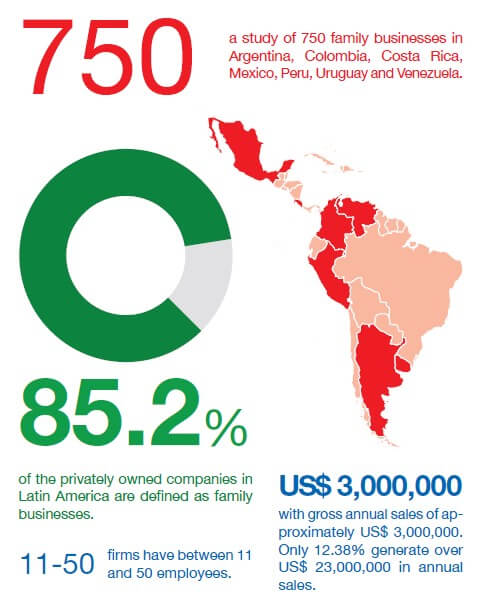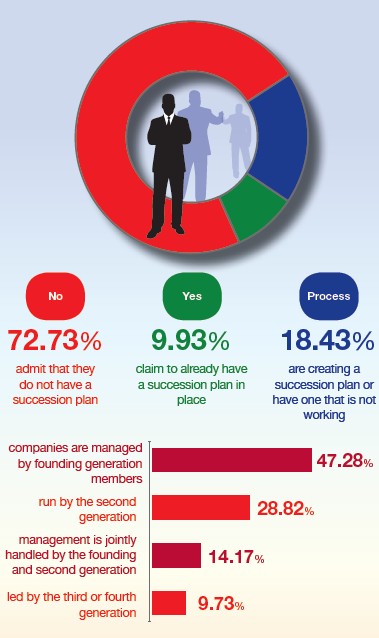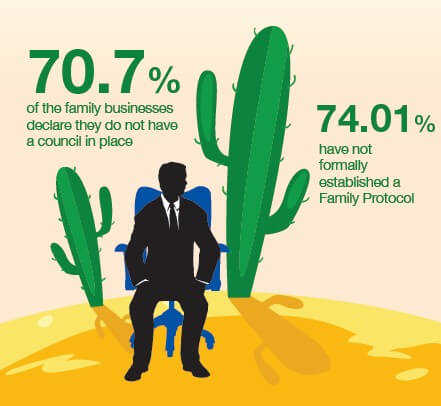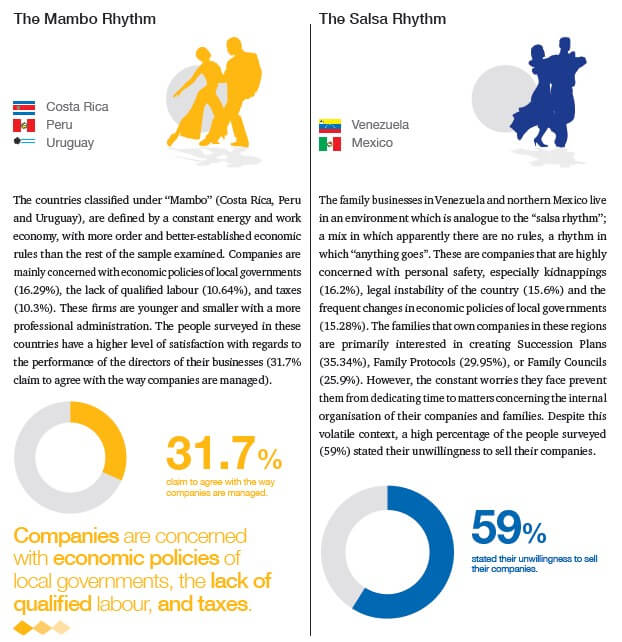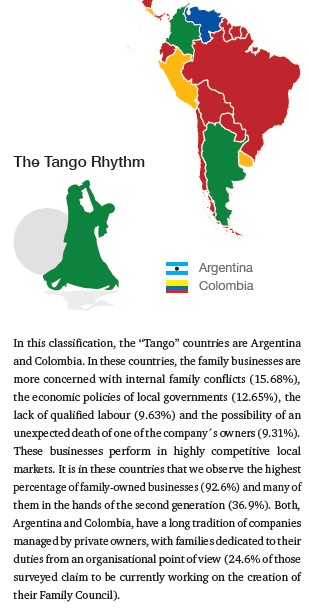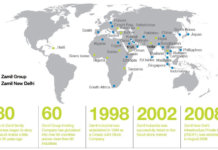Image source; Pixabay via Pexels
How can the Mambo, the Salsa, and the Tango explain the influence of context on strategic decision-making in family businesses? Exaudi Research together with distinguished academic institutions, business associations and consulting firms from different Latin American countries, headed a study of 750 family businesses in Argentina, Colombia, Costa Rica, Mexico, Peru, Uruguay and Venezuela. Guillermo Salazar, Owner and Managing Director of Exaudi Family Business Consulting, Venezuela, makes feet tap and heads nod to the rhythm of Latin American family businesses and the way they prioritise internal and external strategic challenges.
Exaudi Research, together with distinguished academic institutions, business associations and consulting firms from different Latin American countries, conducted a study of 750 family businesses in Argentina, Colombia, Costa Rica, Mexico, Peru, Uruguay and Venezuela. The main objective of the study was to determine the demographic traits of the countries studied and their impact on the managerial and strategic decision-making of family businesses in the region.As a result of this study, we found that 85.2% of the privately owned companies in Latin America are defined as family businesses. On average, these are companies which were founded during the last two decades. They have between 11 and 50 employees, with gross annual sales of approximately US$ 3,000,000. Only 12.38% generate over US$ 23,000,000 in annual sales.
Succession Plan
In Latin America, 47.28% of the companies are managed by founding generation members, 28.82% are run by the second generation (mostly composed of siblings), and in 14.17% of the cases, the management is jointly handled by the founding and second generation. Only 9.73% of the companies are led by the third or fourth generation (consortia made up by cousins). 72.73% of the family businesses surveyed admit that they do not have a succession plan and a mere 8.93% claim to already have one in place. The remaining 18.34% are in the process of creating the succession plan or have it, but find that it does not work. In general, the companies evaluated lack a defined policy according to which the knowledge and required skills, necessary for the continuity of the organisation, may be handed down to an appointed successor.
Family Council and Family Shareholder Agreement
The Family Council is the organism, which regulates the relationships between the family and the company. In Latin America, 70.7% of the family businesses declare they do not have a council in place. However, the Family Protocol (a document which registers the rules pertaining to the relationship of the family with its companies and patrimony) is a common practice in Latin American family businesses, due to the high level of verbal agreements that would otherwise remain unfulfilled and must, therefore, be put down in writing. 74.01% of the surveyed companies have not formally established a Family Protocol, to which we may add those who declare they have one (7.24%), but without it fulfilling its purpose.
Study of the Environment and Country Situation
We have classified each country based on the social, political and economic factors that have an impact on the companies and families. This enables a better understanding of the conditions under which companies operate and how their internal strategies and decision-making regarding family topics are influenced:
The countries classified under “Mambo” (Costa Rica, Peru and Uruguay), are defined by a constant energy and work economy, with more order and better-established economic rules than the rest of the sample examined. Companies are mainly concerned with economic policies of local governments (16.29%), the lack of qualified labour (10.64%), and taxes (10.3%). These firms are younger and smaller with a more professional administration. The people surveyed in these countries have a higher level of satisfaction with regards to the performance of the directors of their businesses (31.7% claim to agree with the way companies are managed).
The family businesses in Venezuela and northern Mexico live in an environment which is analogue to the “salsa rhythm”; a mix in which apparently there are no rules, a rhythm in which “anything goes”. These are companies that are highly concerned with personal safety, especially kidnappings (16.2%), legal instability of the country (15.6%) and the frequent changes in economic policies of local governments (15.28%). The families that own companies in these regions are primarily interested in creating Succession Plans (35.34%), Family Protocols (29.95%), or Family Councils (25.9%). However, the constant worries they face prevent them from dedicating time to matters concerning the internal organisation of their companies and families. Despite this volatile context, a high percentage of the people surveyed (59%) stated their unwillingness to sell their companies.
In this classification, the “Tango” countries are Argentina and Colombia. In these countries, the family businesses are more concerned with internal family conflicts (15.68%), the economic policies of local governments (12.65%), the lack of qualified labour (9.63%) and the possibility of an unexpected death of one of the company´s owners (9.31%). These businesses perform in highly competitive local markets. It is in these countries that we observe the highest percentage of family-owned businesses (92.6%) and many of them in the hands of the second generation (36.9%). Both, Argentina and Colombia, have a long tradition of companies managed by private owners, with families dedicated to their duties from an organisational point of view (24.6% of those surveyed claim to be currently working on the creation of their Family Council).
Conclusion
Latin America cannot be viewed as homogeneous . The situation of each country has an impact on the decisions the families make regarding their business strategies and it affects them in their structure and the way they compete.
Our research concluded that in Latin America, in general, the founder of the family business exercises multiple roles within his organisation. Most companies are run by a father figure who has multiple roles involving decision-making and maintaining control and power. The founder solves all conflicts that arise involving the business, the family, or both.
Most family businesses have not defined a succession plan nor do they have governmental organs such as Family Protocols and Family Councils, which could contribute to solving the disputes, which can arise. Given these facts, we can deduce that in the coming years, a considerable number of family businesses may close down if they do not prioritise best practices in management, or, in other words, if they do not find their own ‘rhythm’.
Research Contributors by Country:
Argentina: ADEN Business School, Niethardt & Asociados and Instituto de la Empresa Familiar.
Colombia: Suárez & Asociados and Universidad Javeriana.
Costa Rica: Universidad Latinoamericana de Ciencia y Tecnología, Cámara Costarricense de Empresas Familiares and Consultoría de Empresas Familiares.
Peru: Peru Top Publications and FG Consulting.
México: Universidad de Monterrey, Coparmex and Álvarez, Carmona & Asociados.
Uruguay: Escuela de Negocios de la Universidad de Montevideo and Delucchi, Labandera, Cianciarulo, Rachetti & Asociados.
Venezuela: Universidad del Zulia, Universidad Metropolitana, Universidad de Carabobo, Ceproca and The Family Business Wiki.org.
Tharawat Magazine, Issue 13, 2012



